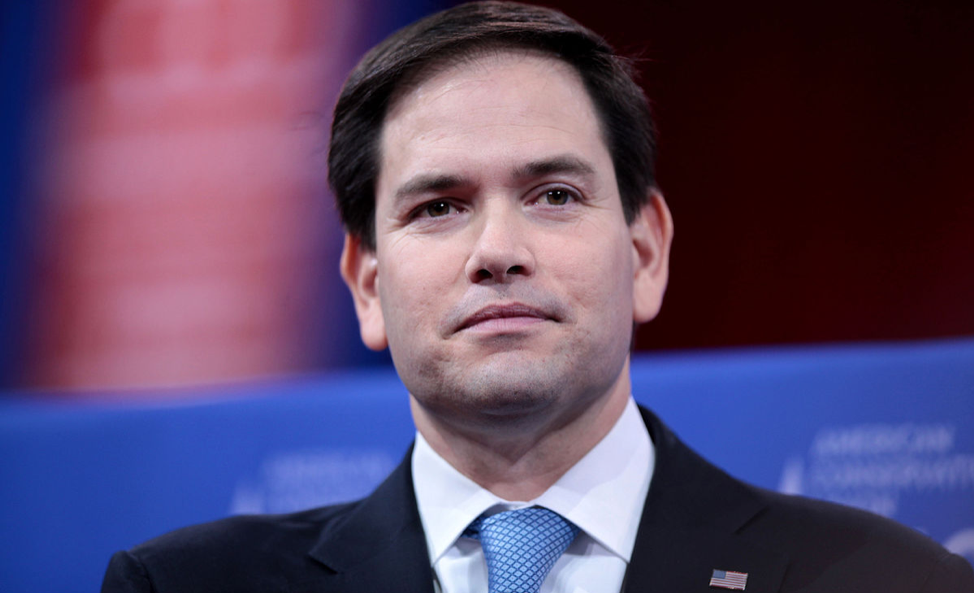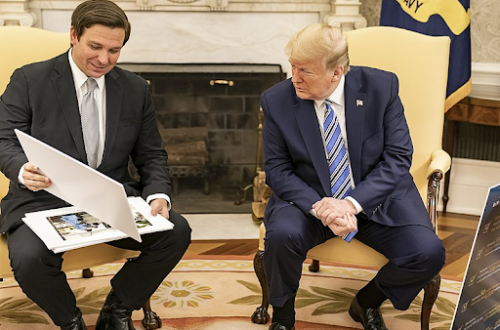As the fireball that was the 2020 presidential election slowly reduces to embers, politicians already have their sights set on the next Senate race in 2022. Marco Rubio, a Floridian Senator and fast-growing Republican figurehead, is certain that he will be running for reelection.
Rubio’s likelihood of winning again is virtually guaranteed; this is proven by the relative landslide of Floridian votes for Trump, which helped him win Florida by over 3 percentage points. Talk of a Republican stronghold forming in Florida is not far-fetched, and this combined with Rubio’s popularity gives him a clear path to victory.
With his job security comes an emboldened affinity for throwing around typical political buzzwords, such as “Communist China” and the “Radical Left.” Rubio named these two entities as his only enemies in a recent Facebook post when trying to draw a parallel between them. He accused them of both using “radical schemes to ruin our country.”
Rubio is smart to employ this terminology; he knows his base. He speaks directly to Hispanic-Americans and more specifically to Cuban-Americans who fear the growth of leftist politics in South America and a resurgence of communism reminiscent of Castro’s rule.
Using the Chinese Communist Party as a talking point is logical, as unfavorable opinions about China among Americans soar to 60% — a number that crosses party lines. Rubio understands that millions of Floridians see China as a militaristic and economic adversary, and he is eager to make his foreign policy expertise central to his campaign.
It is not Rubio’s denouncing of the CCP that is concerning; this is a bipartisan, uncontested issue. Americans are worried because the U.S.’s power on the world stage and its iconic democracy facing the risk of being overshadowed by China’s Communist Party.
Therefore, Rubio’s reference to “Communist China” was strategic and fair. His use of “Communist China” and the “Radical Left” in a manner that implies they are interchangeable was also strategic, but certainly not fair.
In this case, he preyed upon the Florida Democratic Party’s widely recognized weakness of employing a “take-the-high-road” strategy of not fighting back or resorting to name-calling. This behavior theoretically places Florida Democrats on a moral high ground, but realistically only tarnishes their image. Rubio knows by now that name-calling is the key to delegitimizing the FDP and rallying support.
To the FDP, it is clear that communism is not generally supported or accepted. However, to outsiders, this stance is drowned out by continuous accusations of communist and socialist ideology dominating the party.
The FDP’s failure to fight back in the 2020 election cycle confined it to a defensive position, trying to maintain incumbent offices and mostly failing to gain new ones. If this behavior continues and if the FDP does not go out of its way to denounce communism and call out the Florida Republican Party for its own shortcomings, then there is nothing to publicly prove Rubio wrong.
Regardless, two wrongs don’t make a right. The constant name-calling and misinformation that is fueling many political campaigns is only widening the divide.
Besides the diffusion of disinformation that occurs when implying that the CCP and the FDP bear similarities, using the term “Radical Left” nowadays has the same effect of saying a word so many times that it stops sounding like a word at all.
It is no more than a buzzword, full of insinuations at its surface but devoid of an actual definition. Why are they radical? Is it because they have different policies? Is it because they want to confront the issues of crime or education differently? That alone is not radical, but rather a difference in opinion.
As Rubio rises toward political stardom, it would suit him well to leave behind the political buzzwords and name-calling and focus on policy instead. He has plenty of potential and momentum, but his recent Facebook statement showed that he too is willing to replace discussions about policy or attempts to unite Floridians with political retaliation and toxic rhetoric.
If 2022 is to bring Rubio another victory, it would be comforting to see him win with a genuine regard for all the Floridians he represents. Instead of fueling animosity, Rubio could make himself known for starting to heal the political divide among Florida’s electorate.
Featured image: Marco Rubio at the 2015 CPAC Conference. Unmodified photo by Gage Skidmore used under a Creative Commons License. (https://bit.ly/35ChdbZ)
Check out other recent articles from the Florida Political Review here.





